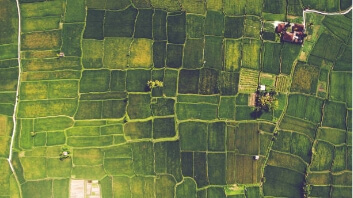The ACR methodology for Reductions and Removals from Avoided Conversion of Grasslands and Shrublands to Crop Production is inactive and ineligible for listing new projects on ACR. The methodology relies on a performance standard additionality test that, per requirements in the ACR Standard, must be re-assessed at minimum every 5 years. The methodology may become active again based on the results of the performance standard review. ACR made the Avoided Conversion of Grasslands and Shrublands to Crop Production methodology inactive on December 31, 2024.
Read more
ACR has published version 2.0 of the Methodology for the Quantification, Monitoring, Reporting and Verification of Greenhouse Gas Emission Reductions and Removals from Avoided Conversion of Grasslands and Shrublands to Crop Production.
The methodology was updated to make it simpler to use, reduce project development costs without sacrificing accuracy in accounting, better align with conservation programs, and reflect the latest trends in conversion. An Errata and Clarification document for v2.0 has also been posted and must applied in conjunction with the methodology.
Version 1.0 of the methodology was developed by Ducks Unlimited, The Nature Conservancy, The Climate Trust, Environmental Defense Fund, and Terra Global Capital LLC. Financial support to update the methodology (v2.0) was provided by a USDA NRCS Conservation Innovation Grant, awarded to Ducks Unlimited, The Nature Conservancy and ACR.
The intent of the Methodology is to incentivize avoided soil carbon loss and agricultural GHG emissions through the placement of grasslands under conservation easements that preclude cultivation. Grassland and shrubland soils are significant reservoirs of organic carbon that, if left uncultivated, will continue to store this carbon below ground. Additional environmental benefits achieved through this project type are: habitat conservation, sediment retention, water purification, recreation and support to traditional ranching economies.
The methodology quantifies the emissions avoided from preventing the conversion of grasslands and shrublands to commodity crop production in the U.S. In addition to the avoided cultivation and oxidation of soil organic carbon, several crop production practices, such as fertilizer application, may also be avoided. Livestock, primarily cattle, are anticipated to be common in the project scenario and their associated emissions from enteric fermentation and manure deposition are accounted for.
ACR is an internationally recognized carbon crediting program that operates in global compliance and voluntary carbon markets. A nonprofit enterprise of Winrock International, ACR was founded in 1996 as the first private greenhouse gas (GHG) registry in the world with the mission of harnessing the power of markets to improve the environment.



